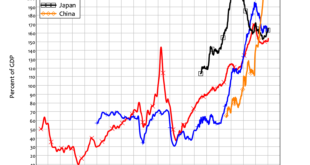The centrality of public debt to private capital markets In thinking about the next ten years, we must acknowledge that new times are coming, and they will lead to big changes in the capitalist system. The absolute novelty of the situation in which the COVID-19 crisis has placed the world, and even more markedly, Europe has made the financial and monetary options that have preoccupied economic debate so far, if not obsolete, at least questionable. It is a crisis that obliges us to rethink,...
Read More »How to strengthen European solidarity?
In 2020, the Covid-19 crisis generated a long-awaited paradigm shift in European economic governance. An unprecedented policy response was provided, together with an entirely new approach to fiscal capacity. The dogma of keeping the EU budget around 1 per cent of the Gross National Income (GNI) and keeping it in balance every year evaporated within a few months.As we look forward to building the Europe of of the next ten years, it is clear that it is not enough to create a new model budget,...
Read More »How to strengthen European solidarity?
In 2020, the Covid-19 crisis generated a long-awaited paradigm shift in European economic governance. An unprecedented policy response was provided, together with an entirely new approach to fiscal capacity. The dogma of keeping the EU budget around 1 per cent of the Gross National Income (GNI) and keeping it in balance every year evaporated within a few months.As we look forward to building the Europe of of the next ten years, it is clear that it is not enough to create a new model budget,...
Read More »How to strengthen European solidarity?
In 2020, the Covid-19 crisis generated a long-awaited paradigm shift in European economic governance. An unprecedented policy response was provided, together with an entirely new approach to fiscal capacity. The dogma of keeping the EU budget around 1 per cent of the Gross National Income (GNI) and keeping it in balance every year evaporated within a few months. As we look forward to building the Europe of of the next ten years, it is clear that it is not enough to create a new model...
Read More »To save the climate – don’t listen to mainstream economists
Ann Pettifor’s The Coming First World Debt Crisis (Pettifor 2006) was the first book to warn of the approaching 2007 Global Financial Crisis. More than decade after that crisis, its cause—excessive private debt, created primarily to finance asset bubbles rather than productive investment—is still with us, while we are entrapped in a pandemic crisis, and on the cusp of a climatic one.Figure 1: Private debt levels over the history of capitalismLooking forward to the next ten years, and given so...
Read More »To save the climate – don’t listen to mainstream economists
Ann Pettifor’s The Coming First World Debt Crisis (Pettifor 2006) was the first book to warn of the approaching 2007 Global Financial Crisis. More than decade after that crisis, its cause—excessive private debt, created primarily to finance asset bubbles rather than productive investment—is still with us, while we are entrapped in a pandemic crisis, and on the cusp of a climatic one.Figure 1: Private debt levels over the history of capitalismLooking forward to the next ten years, and given so...
Read More »To save the climate – don’t listen to mainstream economists
Ann Pettifor’s The Coming First World Debt Crisis (Pettifor 2006) was the first book to warn of the approaching 2007 Global Financial Crisis. More than decade after that crisis, its cause—excessive private debt, created primarily to finance asset bubbles rather than productive investment—is still with us, while we are entrapped in a pandemic crisis, and on the cusp of a climatic one. Figure 1: Private debt levels over the history of capitalism Looking forward to the next ten years, and given...
Read More »From a troubled horizon to a better world?
The Covid-19 crisis is deepening existing fissures and adding new threats to an already scarred and anxious world. As a localized health crisis became a global pandemic, many countries put broad swathes of their economies into a policy induced coma to halt the spread of the virus and ease the burden on overstretched health systems. As a result, the global economy will experience a recession this year on a scale not experienced since the 1930s. The damage will be both lasting and severe,...
Read More »From a troubled horizon to a better world?
The Covid-19 crisis is deepening existing fissures and adding new threats to an already scarred and anxious world. As a localized health crisis became a global pandemic, many countries put broad swathes of their economies into a policy induced coma to halt the spread of the virus and ease the burden on overstretched health systems. As a result, the global economy will experience a recession this year on a scale not experienced since the 1930s. The damage will be both lasting and severe,...
Read More »From a troubled horizon to a better world?
The Covid-19 crisis is deepening existing fissures and adding new threats to an already scarred and anxious world. As a localized health crisis became a global pandemic, many countries put broad swathes of their economies into a policy induced coma to halt the spread of the virus and ease the burden on overstretched health systems. As a result, the global economy will experience a recession this year on a scale not experienced since the 1930s. The damage will be both lasting and severe,...
Read More » Prime, Policy Research in Macroeconomics
Prime, Policy Research in Macroeconomics


